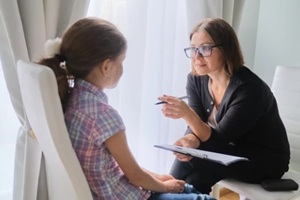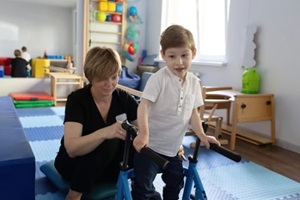
Children’s therapy is an invaluable tool in any family’s arsenal for helping their youngest members flourish and overcome difficulties. However, not every child responds to therapy similarly; in some cases, it is advantageous for a parent (or other family members) to be present. In others, the child is best left to discuss their difficulties alone with the therapist. Knowing which option is better for your family comes down to numerous factors.
Many benefits (and potential challenges) are associated with involving the entire family in a child’s therapy. Here are some scenarios in which this choice is wise and some instances where the child may best be served attending alone.
The Benefits of Involving the Entire Family
Studies have repeatedly shown that children can see improved outcomes from therapy if their family participates actively. The main reasons why a whole family should be involved in a child’s therapy process are:
Mental Health is Family Business
A child’s mental well-being does not exist in a vacuum. Family dynamics play a significant role in how a child copes with challenges or recovers from trauma. Involving the entire family in therapy helps them to develop coping mechanisms as a group, which further enables the family to provide the proper support for the child outside the therapist’s office.
Communication Can Improve
When a family participates actively with their child’s therapist, they may notice their child is more willing to communicate during sessions. They may feel comforted that their parents are present, or their family may be able to facilitate their recollection of events or descriptions of them. This allows for better, more accurate treatment.
Children Need Support
Some children might become uncooperative during individual therapy because they feel isolated. Including the whole family gives the child a group of cheerleaders who support them every step of the way. This can give the child the confidence to be honest about their situation and tackle complex subjects.
When Involving the Family in Children’s Therapy Is a Disadvantage

While the research does indicate that children see greater benefit from therapy when their family is present, this effect is not universal. There are some situations in which family participation can hinder rather than help therapy progress.
Families May Not Respect Privacy
Some children are shy, and others may wish to discuss issues that they believe are sensitive. Regardless of the reasoning, some children may become uncomfortable sharing important details if their families are present. This may be especially true with preteens and teenagers, who often wish to discuss age-appropriate information that they would find embarrassing to disclose to parents.
Additionally, some families may respond negatively to information, even if the child does choose to share it freely. This can lead to consequences after the therapy appointment and future inhibition that interferes with therapy success.
A Family May Become Cumbersome
Having numerous family members in the room during therapy can become troublesome if those family members are not respectful or supportive of the process. When two or three individuals have opinions about how a therapist approaches a topic or what information is important to include, things can quickly devolve into “too many cooks in the kitchen.”
They may also interfere with therapy results by putting words in the child’s mouth or priming them with the answers they expect to hear, inhibiting genuine communication between the child and therapist.
The Family May Have Its Own Trauma
Not all families offer a healthy environment for a child. Whether the child is attending therapy to address the effects of their family environment or needs a safe space to be, families may not always be supportive.
For instance, if a child is learning to cope with trauma from domestic violence, it is not wise or safe for the parties involved to be present during the child’s therapy sessions. Even those who were not actively part of the child’s traumatic event can bring more pain if they have their own trauma to process first.
Support Your Child Throughout the Therapy Process

In general, therapists recommend that parents attend therapy with children because research indicates that children see better outcomes when they participate with their family present. They can enjoy additional support and comfort during this time, and the family can learn how to move on together.
However, this is not always the right strategy. A therapist can help you understand what level of participation will suit your child best. Contact Village Counseling today to schedule your children’s therapy appointment and discuss whether you or others in your family should be present.
